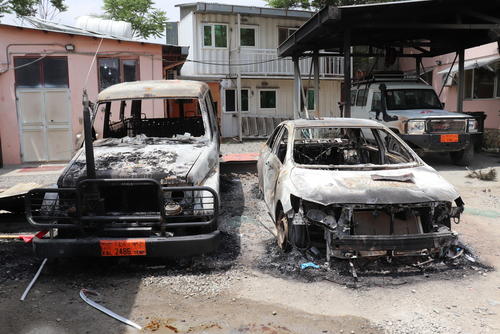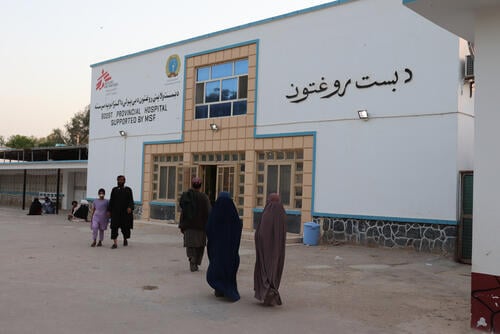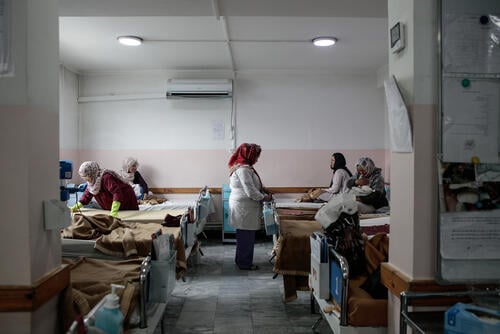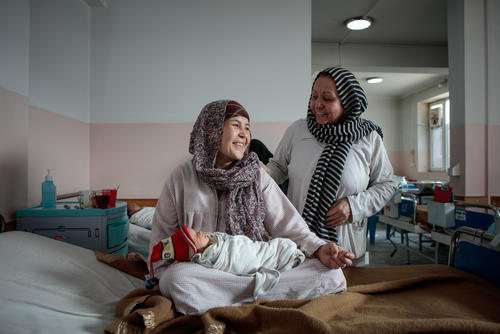Update 15 June 2020: Since this article's publication on 3 June, further information has confirmed that 16 mothers were killed in the attack on Dasht-e-Barchi hospital's maternity wing. MSF has also decided to withdraw completely from Dasht-e-Barchi.
In the three weeks since a vicious attack on the Médecins Sans Frontiéres (MSF)-run maternity wing at Dasht-e-Barchi hospital in Kabul, Afghanistan, assessments have revealed that 15 mothers were killed in the hospital. Five of these women were in labour and were minutes, or at most hours, from giving birth to their babies. An MSF midwife, Maryam Noorzad, was also killed in the attack on 12 May, as well as two children aged 7 and 8. We are devastated by this act of horrific violence.
MSF asks for inquiry to resolve unanswered questions
In the wake of the violent assault, three weeks later, we still don’t know who attacked us or why. We need to know who killed our patients and midwife, and why the maternity wing was targeted. For that reason, we ask the relevant authorities to conduct an inquiry into this brutal attack.
We have not been approached in relation to any investigations into the incident. It is crucial that an inquiry is carried out to answer the questions still pending and that its results are made available in an open and transparent manner. We need to know the circumstances and motives around the attack and who the perpetrators are. We need to understand if MSF, our patients, staff and facilities are a target.
In the current situation, and without answers to any of these questions, it would be difficult for MSF to think about restarting our activities in Darst-e-Barchi.
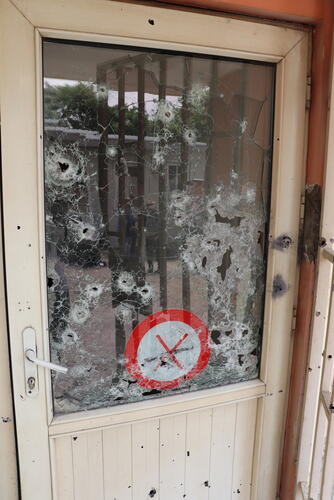
Systemic, cold-blooded attack on mothers
All indications are that the attack targeted the maternity wing itself, and in particular mothers, in the hospital. The assailants systematically moved from one room to another, killing mothers in their beds. The attackers entered the hospital through the main gate and moved quickly past several buildings, heading directly to the maternity wing.
There were 28 mothers in the maternity wing at the time: we can confirm that 15 of them were killed. In total, according to the official toll released by Afghan authorities, 24 people were killed and more than 20 were injured. Among the victims of the attack were an MSF Afghan midwife, five babies just hours before being born, and two boys aged less than 10 who were at the hospital for routine vaccination.
Assessment reveals terror attack that lasted for hours
The assessment carried out in the aftermath of the attack and the intervention of the security forces showed walls sprayed with bullets, blood on the floors in the rooms, vehicles burnt out and windows shot through. The attack was brutal, with the ordeal lasting for hours.
The death toll could have been much higher if more than 100 people hadn’t managed to find shelter in the safe rooms of the facility. This was a terror attack, aimed to terrorise a vulnerable community by targeting the maternity wing and systematically shooting pregnant women and babies.
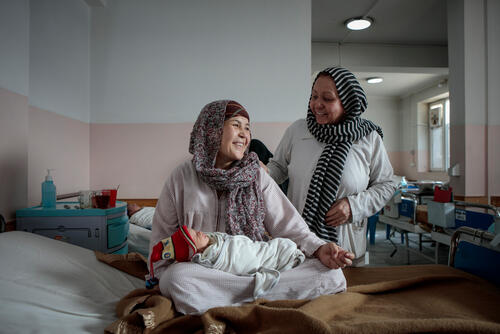
Attack deprives women of essential lifesaving care
In the wake of the attack, we have closed the maternity wing and suspended our activities. The consequences of this attack has been to deprive women and babies of lifesaving medical care.
The area of Kabul served by the maternity wing is home to more than one million particularly vulnerable people, the majority of whom are Hazara. The Hazara are a historically marginalised and poor people, displaced from their original land in the provinces of Afghanistan due to decades of conflict.
With 55 beds, including 30 beds for mothers and 25 beds in the new-born unit and kangaroo mother-care unit, the Dasht-e-Barchi maternity wing was providing essential maternal care in one of the most densely-populated areas of the capital and its surroundings. Women and babies in the area are now without access to essential medical care, in a country where maternal and neonate (new-born) mortality, particularly among more vulnerable people, is quite high.
In Afghanistan each year, 638 mothers die per 100,000 live births. In comparison, the ratio in France is 8, in Belgium 5 and in Spain 4 per 100,000 live births per year.
Our teams are now doing their best to ensure that both mothers and new-borns who were in the hospital are taken care of in other facilities as appropriate.



